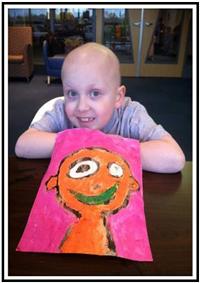The Importance of Teaching Children Empathy
By Guest Blogger Chantal D. Hayes, MA, LPCA, NCC, CLC, Licensed Clinical Therapist
Empathy is defined as the ability to understand and share the feelings of another. It seems so simple, yet it is an essential (and often overlooked) skill children need to learn in order to develop into healthy adults. As parents, it’s not always in the forefront of our minds, and some may find it a bit odd to think they need to actually teach their child empathy. Doesn’t it just come naturally?
Yes and no. Children are born with the aptitude for empathy, but it needs to be taught and encouraged throughout their childhood. Research shows there is a clear correlation between the ability to empathize and future fulfillment and success. Making (and keeping) worthy friends, succeeding in school, attaining a gratifying career, maintaining a healthy marriage, all of these things rely on one critical skill: EMPATHY.
So how can we teach and nurture this key ability? Here are three simple guidelines.
Make your parental expectations clear
Consider the daily messages you send to your child. What does your child believe is your most important expectation? Making good grades? Being happy? Having fun? Although these things certainly have value, it is most important that children understand the significance of caring about others. Before dropping my daughter off at kindergarten each day, I remind her to do her best, to have courage, and to always look for ways to BE KIND to others. When she gets home from school I ask her to share how she showed kindness to others, then praise that behavior. Then I ask her to share about when she noticed others being kind to her, and we talk about being grateful for kindness. This is a vital part of teaching high moral and ethical expectations, and when reinforced daily, a child is well on her way to becoming a proficient empathizer.
Identify Feelings
It can be difficult (if not impossible) to practice empathy without understanding specific emotions and being able to identify them in others. Whenever possible, help your child put a name to his or her feelings. When he’s angry, you can say, “It seems like you are feeling really angry right now. It’s okay to feel angry. We all get angry sometimes.” If your son grabs a toy from his sister, you could say “Your sister is crying. It seems like she is sad that you took her toy. What could you do to help her feel better?”
Use books as opportunities to ask your child to identify emotions in the characters of the story. You can also make a game out of it; when you’re out on the playground, try sitting together on a bench and observing others awhile. Pick a person and have your child try to guess what he/she is feeling, and why. Take turns. For instance, “See that little girl standing at the top of the slide? She looks like she doesn’t want to go down. Maybe she is feeling afraid. What do you think?” Sesame Street has a great segment called “Name That Emotion.” Check it out. Watch it with your kids!
Be a Role Model
You’ve heard it before but it’s worth repeating: your kids are constantly watching you and learning how to behave by your actions. Even when you think they don’t notice, they are observing your every move. Ask yourself how you are practicing empathy and compassion in your daily life? Take your child to volunteer at a charitable organization. Explain that some families struggle to have enough to eat, and some children don’t have many toys. Encourage your child to give to others less fortunate and emphasize the feelings that accompany giving (joy, pride, worth) as well as receiving (grateful, happy, etc).
Don’t be afraid to show your child your emotions—even the negative ones. We all get angry. We try to stay in control, but don’t beat yourself up if you lose your temper and yell at your child every once and awhile. Everyone makes mistakes! What’s important is showing your child that you’re a real person who sometimes gets angry, makes mistakes, and is able to apologize for them. That leads to an excellent opportunity to role-model how to give a sincere apology, which is also an important skill (unfortunately with which many adults still struggle– save that for another post!)
I’ve had many parents ask me if it’s okay for their children to see them cry, or if it’s appropriate for them to attend a family member’s funeral. The answer is yes, it’s fine. Most often it can ultimately be a positive experience. Be honest and authentic with your child. In kid terms, share with him why you’re sad and the different emotions you may be feeling. Share with him what helps to get you through difficult and sad times. These are all teaching opportunities that will not only help him learn empathy and coping skills, but will also foster insight, courage, authenticity and trust.
As a therapist, I have seen many children and adolescents with academic problems, school and family conflict, aggression, anxiety, depression and more because they haven’t been routinely taught the skills to learn empathy. With the influx in bullying and violence beginning earlier now than ever, it’s time that we as parents make teaching empathy a priority. By making your parental expectations clear, teaching to identify feelings, and consistently monitoring your own behaviors as a role model, you can make a lasting positive change throughout the world. It starts with you. It starts with our children.







